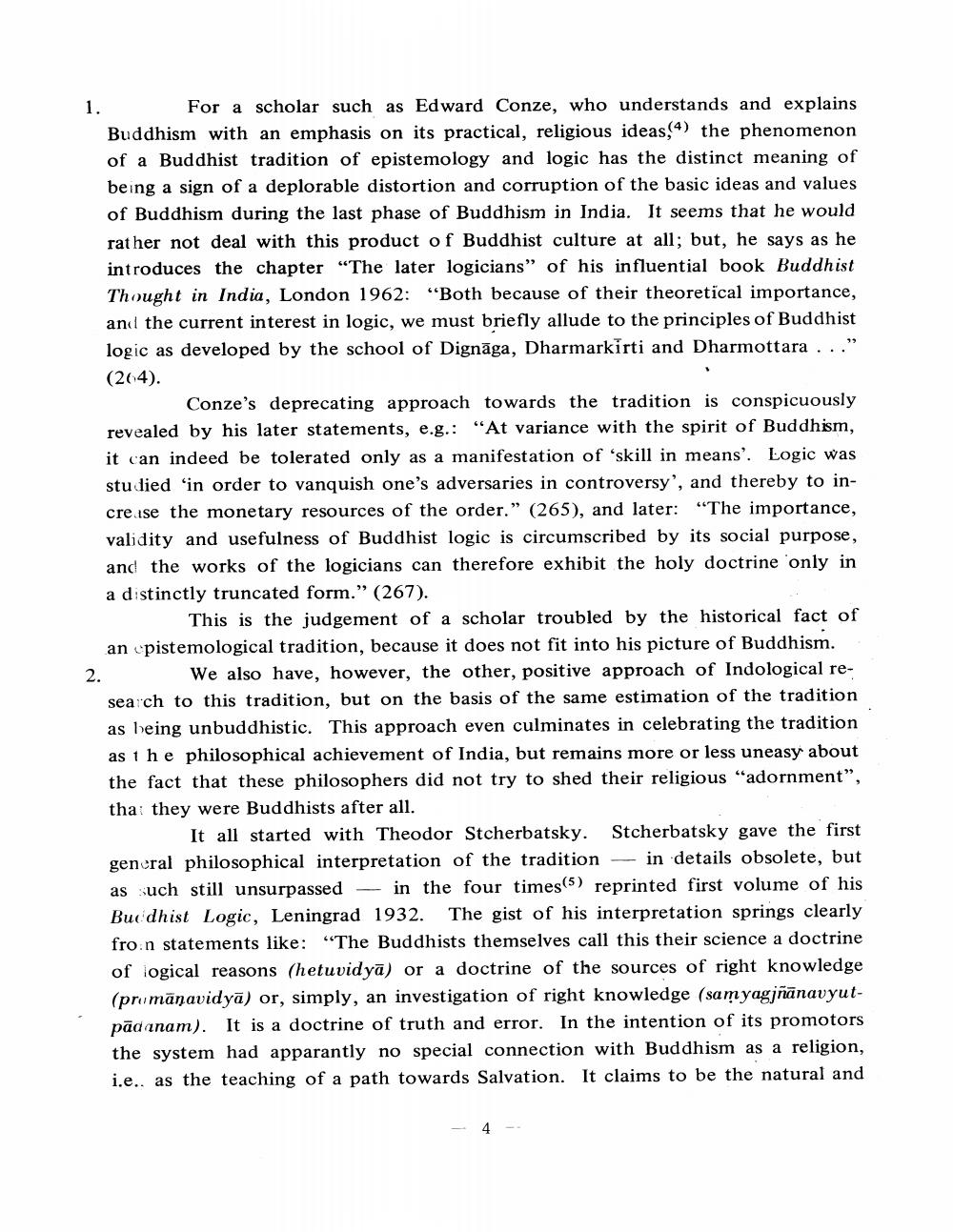Book Title: Spiritual Place Of Epistemological Tradition In Buddhism Author(s): Ernst Steinkellner Publisher: Ernst Steinkellner View full book textPage 4
________________ (2014). For a scholar such as Edward Conze, who understands and explains Buddhism with an emphasis on its practical, religious ideas,“) the phenomenon of a Buddhist tradition of epistemology and logic has the distinct meaning of being a sign of a deplorable distortion and corruption of the basic ideas and values of Buddhism during the last phase of Buddhism in India. It seems that he would rather not deal with this product of Buddhist culture at all; but, he says as he introduces the chapter “The later logicians" of his influential book Buddhist Thought in India, London 1962: “Both because of their theoretical importance, and the current interest in logic, we must briefly allude to the principles of Buddhist logic as developed by the school of Dignāga, Dharmarkirti and Dharmottara ..." (264). Conze's deprecating approach towards the tradition is conspicuously revealed by his later statements, e.g.: “At variance with the spirit of Buddhism, it can indeed be tolerated only as a manifestation of 'skill in means'. Logic was studied 'in order to vanquish one's adversaries in controversy', and thereby to incre use the monetary resources of the order." (265), and later: "The importance, validity and usefulness of Buddhist logic is circumscribed by its social purpose, and the works of the logicians can therefore exhibit the holy doctrine only in a distinctly truncated form.” (267). This is the judgement of a scholar troubled by the historical fact of an pistemological tradition, because it does not fit into his picture of Buddhism. 2. We also have, however, the other, positive approach of Indological re search to this tradition, but on the basis of the same estimation of the tradition as being unbuddhistic. This approach even culminates in celebrating the tradition as the philosophical achievement of India, but remains more or less uneasy about the fact that these philosophers did not try to shed their religious "adornment", tha: they were Buddhists after all. It all started with Theodor Stcherbatsky. Stcherbatsky gave the first general philosophical interpretation of the tradition - in details obsolete, but as such still unsurpassed – in the four times(5) reprinted first volume of his Buddhist Logic, Leningrad 1932. The gist of his interpretation springs clearly fro n statements like: “The Buddhists themselves call this their science a doctrine of logical reasons (hetuvidyā) or a doctrine of the sources of right knowledge (prumānavidyā) or, simply, an investigation of right knowledge (samyagjñanavyutpādanam). It is a doctrine of truth and error. In the intention of its promotors the system had apparantly no special connection with Buddhism as a religion, i.e., as the teaching of a path towards Salvation. It claims to be the natural and - 4 -Page Navigation
1 2 3 4 5 6 7 8 9 10 11 12 13 14 15 16 17 18
